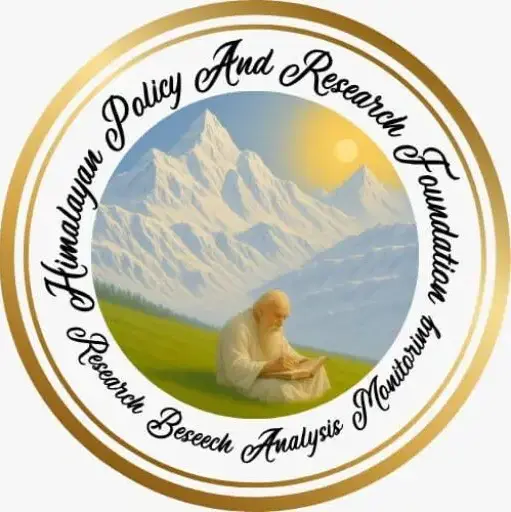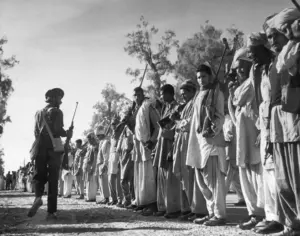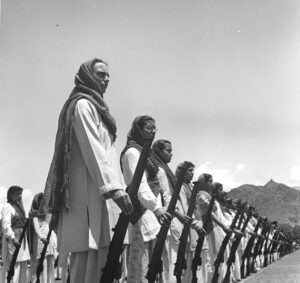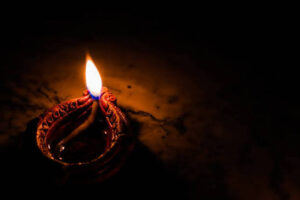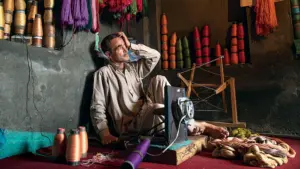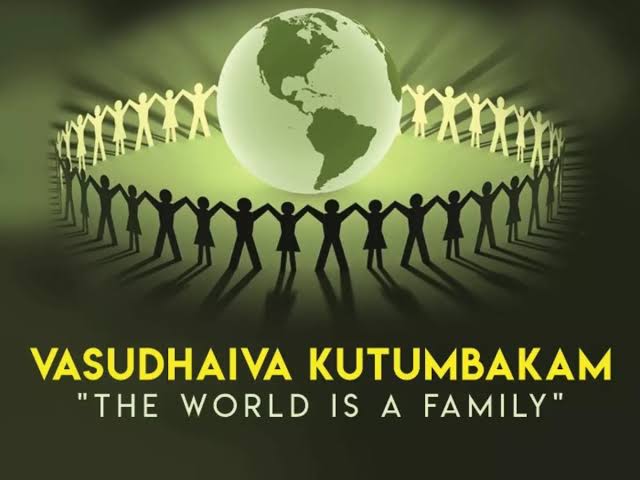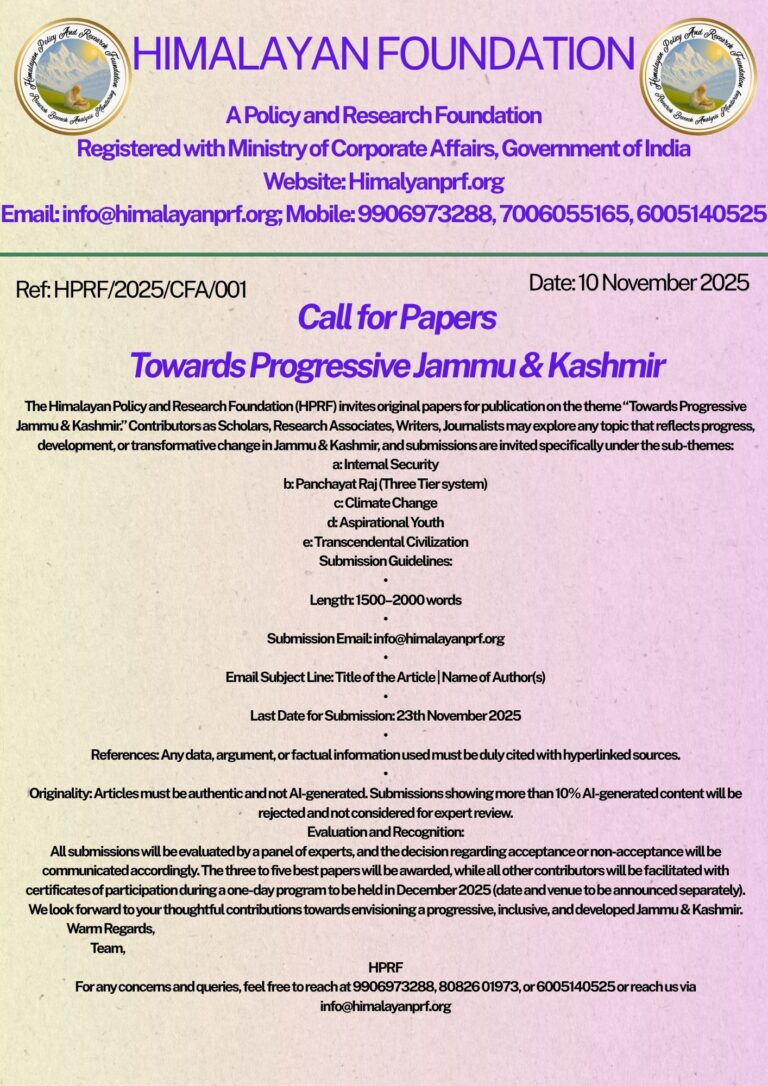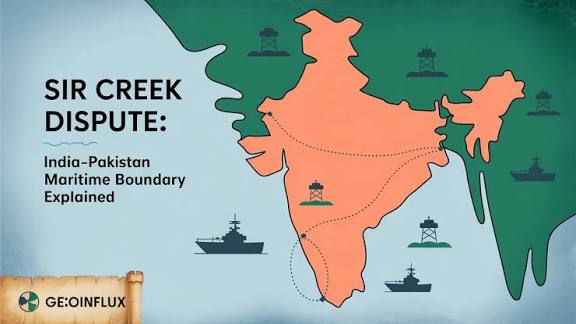By: Irshad Ahmad ( Research scholar )
For much of the modern age, international political thought has struggled with the moral anxieties of war and peace. From Grotius to Clausewitz, and from the League of Nations to the United Nations, the core concern of global ethics was this: how to manage violence among sovereign states. The devastation of the two World Wars, especially the Second, ruptured that trajectory. The creation of the United Nations, the Universal Declaration of Human Rights, and the Bretton Woods institutions did not arise from moral triumph, but from exhaustion and necessity. They were instruments of compromise, forged not in the optimism of moral vision, but in the shadow of catastrophe. They sought not to create a just world, but to prevent another descent into barbarism.
And yet, these institutions birthed a vocabulary — of rights, sovereignty, development — that shaped the hopes of post-colonial states and structured the imagination of the international community. That vocabulary, however, is now fraying. The liberal order it sustained — anchored in the promise of human rights, free markets, and sovereign equality — finds itself at odds with the world it inhabits. In the face of ecological collapse, data colonization, corporate sovereignty, and the pervasive dislocation of people and meaning, the moral language we inherited from the mid-20th century feels thin, procedural, and profoundly inadequate.
The problem is not just institutional. It is ontological. It lies in the very architecture of modern moral thought. The global justice discourse — shaped by figures like Immanuel Kant, John Rawls, Charles Beitz, Thomas Pogge, and Martha Nussbaum — has sought, with varying degrees of ambition, to rescue the individual from the indifference of states. Kant imagined a cosmopolitan federation where the dignity of the individual superseded the contingencies of national identity. Rawls, in The Law of Peoples, introduced the idea of a global order built upon respect for decent societies and the duty of assistance to burdened ones. Yet Rawls retained a statist outlook; he believed in justice between peoples, not justice across humanity.
Others went further. Beitz argued that Rawls’s own logic should lead to a global difference principle — that inequalities between countries should be justified by their benefits to the worst-off globally. Pogge dismantled the illusion of innocence: he showed how global institutional arrangements are structured to perpetuate deprivation, and that affluent societies are not mere bystanders but active participants in injustice. Nussbaum reimagined justice through the lens of capabilities — the concrete freedoms people have to live lives they value. In different ways, these thinkers tried to dethrone the state as the exclusive locus of moral concern.
Yet even these radical theories remain tethered to a particular picture of the world. The individual is still conceived as an autonomous unit, a bearer of rights, an agent of choice. Justice, in this frame, is primarily about distributing goods, correcting procedures, and minimizing harm. What remains largely unexamined is the deeper question: what kind of being is the human, and how does that being relate to others, to the world, and to the divine?
Here, Indian civilizational thought presents not a solution, but a deeper challenge. Not because it is Indian, but because it gestures towards a different ontological premise — one that begins not with autonomy but with embeddedness, not with entitlement but with obligation, not with individuality but with relationality.
At the heart of this challenge is the ancient notion of Vasudhaiva Kutumbakam — “the world is one family.” Stripped of its diplomatic superficialities, this is not a utopian slogan. It is a metaphysical claim. It affirms that all beings — human and non-human, animate and inanimate — are woven into a single, sacred fabric. The Upanishadic vision of tat tvam asi — “thou art that” — collapses the boundary between self and other. To be human is not to stand apart, but to stand in relation.
This vision reframes justice. In the modern liberal tradition, justice is often conceived in terms of choice and contract. In the Indian tradition, it is conceived in terms of dharma — a word poorly translated as duty, but closer in spirit to rightful conduct within a moral cosmos. Dharma is not merely a social code. It is an ontological alignment. It reflects the idea that our actions participate in the deeper order of being — and that justice is not simply about rights, but about living rightly.
This framework complicates the familiar categories of liberal thought. Take the idea of rights. In the Indian tradition, one is not born with rights as autonomous claims, but into relationships of debt (rna): to one’s parents, teachers, community, ancestors, and the natural world. These debts are not burdens but forms of belonging. They cultivate humility, reciprocity, and the consciousness that the self is never sovereign. The moral question is not “what am I owed?”, but “what do I owe?”
This ethic, far from being archaic, has radical implications for global justice. Climate change, for example, is often framed in terms of emissions targets, carbon pricing, and intergenerational equity. But such frameworks are blind to the fact that our ecological crisis is also a spiritual crisis — a rupture in our relationship with the Earth. In the Indic worldview, the Earth (Prthvi) is not a resource, but a mother — a being to whom we owe reverence, not extraction. Climate justice, then, is not only about compensation, but about communion.
Similarly, the global debate on poverty and inequality is dominated by technocratic metrics and distributional formulas. But Indian ethics asks a different question: what justifies the accumulation of wealth in the first place? The principle of aparigraha — non-possession — reminds us that hoarding is a form of violence, and that wealth divorced from restraint breeds disorder. Justice, in this view, is not about making poverty bearable, but about dismantling the moral legitimacy of excess.
Even our understanding of migration, displacement, and war is reshaped by this framework. A refugee, in liberal thought, is a displaced rights-bearing individual. In the Indic imagination, displacement is a rupture of samskāra — the moral and cultural imprint that roots a person in a world of meaning. War is not merely the violation of treaties, but the disruption of cosmic harmony. Peace is not the absence of violence, but the presence of balance.
This does not mean Indian thought is above critique. It has been complicit in caste hierarchies, gender exclusions, and dogmatic ossifications. But its philosophical resources — its metaphysics of unity, its ethics of restraint, its vision of interconnectedness — offer what the modern world lacks: a way of imagining justice not as a legal arrangement among individuals, but as a moral orientation within a sacred world.
In our time, the global order is fraying. Trust is collapsing. Institutions are hollowing out. Liberalism is defensively procedural; authoritarianism is aggressively moralistic. Between them lies a void. Into this void, we must bring not nostalgia or nativism, but new-old moral languages — languages that remind us that we are not atoms in competition, but beings in relation.
Vasudhaiva Kutumbakam is one such language. Not a blueprint, not a doctrine, but a provocation — to imagine justice not from the vantage point of sovereignty, but from the experience of shared vulnerability. It calls us to reconstitute the moral imagination of the global order: to move from transaction to obligation, from distribution to reverence, from autonomy to interconnectedness.
We do not need to “Indianize” global justice. But we do need to enrich it — with voices, traditions, and metaphysical commitments that see the world not merely as an arena of interests, but as a web of mutual becoming. In doing so, we may yet find that the path to a more just world is not paved only with policies, but with the courage to ask deeper questions about what it means to live, to owe, and to belong.
( THE VIEWS EXPRESSED IN THIS ARTICLE ARE SOLELY THOSE OF THE AUTHOR )
